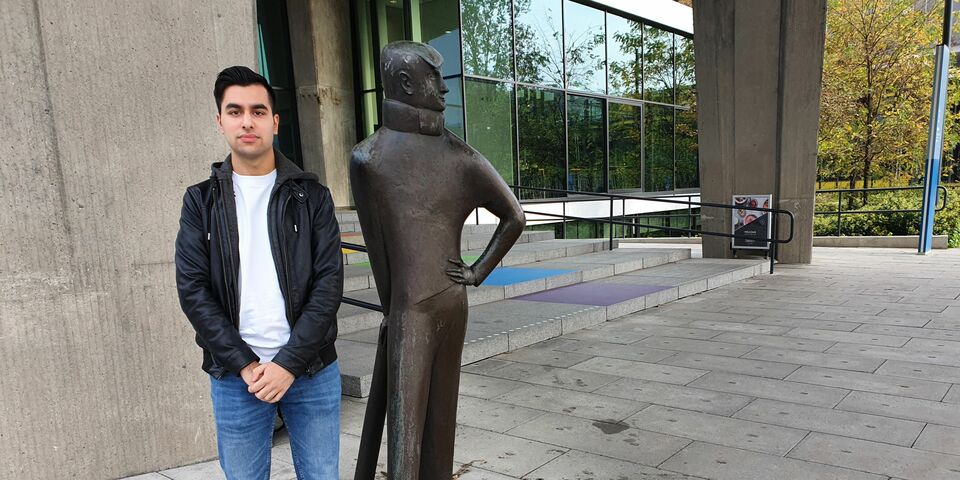Student launches petition on overly difficult basic course Applied Physics
Dissatisfied with the extremely low pass rates for the basic course Applied natural sciences, Industrial Design student Ramin Latify appealed to his examination committee and to the lecturer responsible for the course. Since he did not receive satisfactory answers, he and fellow students have now set up a petition. Two of the demands: supervision of the quality of the exams by an independent party and transparency about the course’s pass rate.
“I’ve taken the exam eight or nine times now”, says fourth-year student Ramin Latify, who has lost count, “and I’m not the only one”. The basic course is a stumbling block for many people, but the fact that his own analysis showed that the percentages are so low is shocking to Latify.
“Canvas indicated that the exam taken in February 2022 was passed by 36 percent of students. The grades were also posted on Canvas. I analyzed those and found out the pass rate was a mere 32 percent. I couldn’t find a pass rate on Canvas for the retake in April, but I did find the grades, and came to the conclusion that it was just 16 percent.”
Latify submitted a request to his own department’s examination committee to have the quality of the exam investigated. “That committee sent the request to the examination committee of Applied Physics. Unfortunately, I didn’t get a substantive response, but a standard email in return.” He was told that there is a Quality Assurance Officer at AP, but he waited a month in vain for a response to the email he sent them. “I did receive a message from AP program director Henk Swagten that I wouldn’t be given insight into the investigation. It seems like they have something to hide.”
Untransparent
According to Latify, the problem with the exams is that the questions are too difficult. He also notices that the course of lectures, which he himself has taken twice, does not provide sufficient preparation for the exam. “Fellow students have told me that too.”
The fourth-year student tried to contact the lecturer responsible for the course, André Duif, but according to Latify, he indicated that while he shares his concerns, he will not enter into conversation with individual students.
The lack of transparency bothers Latify. He is not so much concerned about his own problems as he is about the hundreds of students who are affected. Either way, he is demonstrably falling behind with his studies because of this course. “I can’t start my bachelor’s final project at ID if I haven’t passed all courses.”
The aim of the petition is to call, on behalf of all those taking the course, for strict supervision of the quality of the exams by an independent party, transparency about the results, improvement of the pass rate and compensation for any study delay.
Conceptual questions
The responsible lecturer André Duif acknowledges that last year’s pass rate was alarmingly low. “For the past two years, the final tests have consisted of both conceptual and mathematical questions. The underlying idea is that you can never solve a mathematical question independently if you don’t master the underlying concepts. Analysis of the results of those conceptual questions shows that students don’t sufficiently grasp these concepts. That’s worrisome and needs to be addressed.”
Still, Duif believes the level of difficulty has not increased over the past few years. “The final test of 3NAB0 is established by the course’s entire teaching team. Last year, that included four teachers who had been involved in the course for several years and were therefore able to accurately assess the level of difficulty.”
Transparent
The petition calls for supervision and safeguarding of the quality. According to Duif, this demand is already being met. “It also calls for transparency. The course is covered by AP’s quality assurance plan; it’s monitored by the quality assurance officer and the program director and forwarded to AP’s examination committee and program committee. In that sense, the process is completely transparent.”
The need for improvement of the pass rates is, in the lecturer’s opinion, a very strange demand. “That’s never something a teaching team can promise.”


Discussion